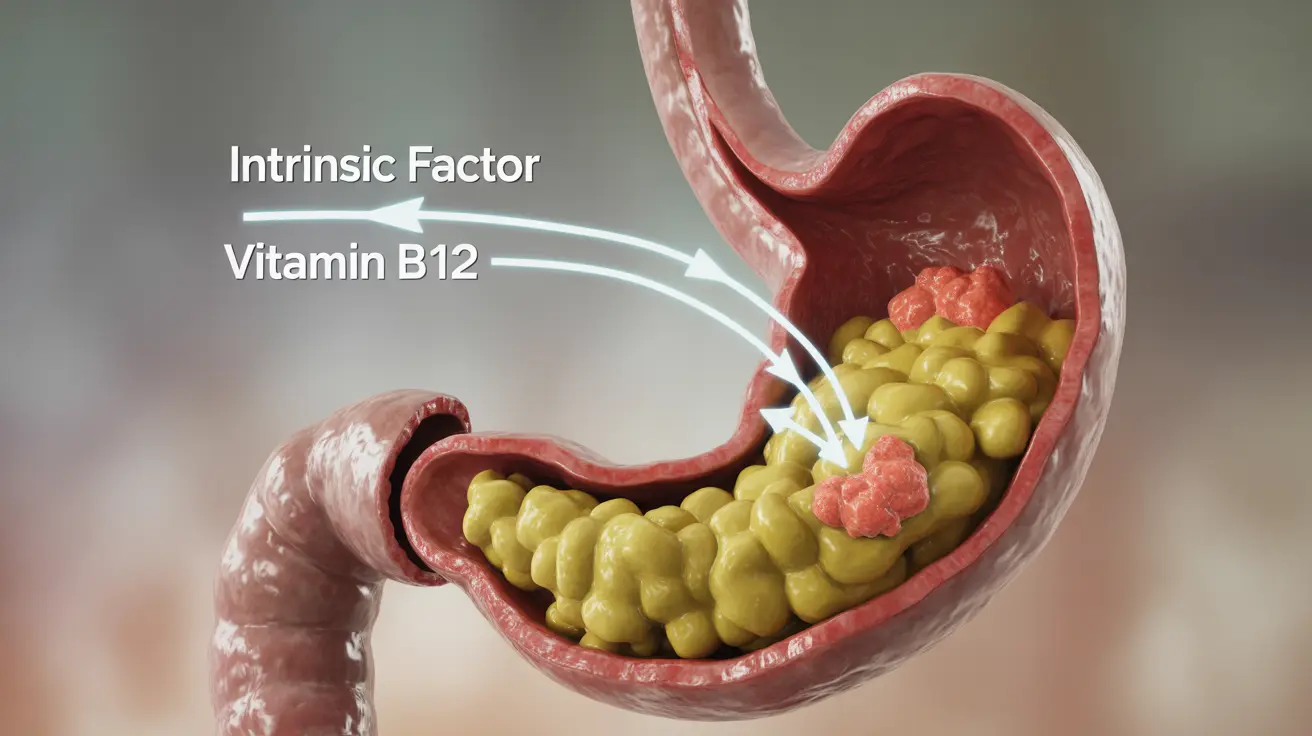Pernicious anemia is a serious autoimmune condition where the body cannot properly absorb vitamin B12, leading to a decrease in healthy red blood cells. This condition occurs when the stomach fails to produce a protein called intrinsic factor, which is essential for B12 absorption. Understanding this condition is crucial for early detection and proper management.
While pernicious anemia can affect anyone, it's more common in older adults and those with certain risk factors, including a family history of the condition or other autoimmune disorders. With proper diagnosis and treatment, most people with pernicious anemia can lead healthy, active lives.
What Causes Pernicious Anemia?
The primary cause of pernicious anemia is an autoimmune response where the body's immune system attacks the cells in the stomach that produce intrinsic factor. Without this crucial protein, the body cannot absorb vitamin B12 from food sources, leading to deficiency.
Several risk factors can increase your likelihood of developing pernicious anemia:
- Age (more common in people over 60)
- Northern European or Scandinavian ancestry
- Family history of the condition
- History of autoimmune disorders
- Type 1 diabetes
- Thyroid disease
Common Symptoms and Warning Signs
The symptoms of pernicious anemia typically develop gradually and may include:
- Fatigue and weakness
- Shortness of breath
- Pale or yellowing skin
- Rapid heartbeat
- Dizziness or lightheadedness
- Balance problems
- Numbness or tingling in hands and feet
- Memory problems
- Mood changes
- Smooth, red tongue
Neurological Symptoms
If left untreated, pernicious anemia can lead to serious neurological complications. These may include:
- Difficulty walking
- Memory loss
- Depression
- Confusion
- Dementia-like symptoms
Diagnosis and Testing
Doctors use several methods to diagnose pernicious anemia accurately:
- Complete blood count (CBC)
- Vitamin B12 levels test
- Intrinsic factor antibody test
- Methylmalonic acid test
- Homocysteine level test
- Bone marrow examination (in some cases)
Treatment Approaches
Treatment for pernicious anemia focuses on restoring vitamin B12 levels and maintaining them long-term. The primary treatment methods include:
Vitamin B12 Injections
Most patients begin with regular B12 injections to quickly restore levels. The typical schedule includes:
- Initial frequent injections (often daily or weekly)
- Maintenance injections every 1-3 months
- Lifelong treatment requirement
Oral Supplements
Some patients may be candidates for high-dose oral B12 supplements, though this is less common due to absorption issues. Your doctor will determine the best treatment approach based on your specific situation.
Lifestyle Management and Diet
While diet alone cannot treat pernicious anemia, maintaining a healthy diet rich in vitamin B12 can support overall health. Good food sources include:
- Lean meats
- Fish
- Eggs
- Dairy products
- Fortified cereals
Frequently Asked Questions
What causes pernicious anemia and how does it affect vitamin B12 absorption? Pernicious anemia is caused by an autoimmune response that destroys stomach cells producing intrinsic factor, a protein necessary for B12 absorption. Without intrinsic factor, the body cannot absorb vitamin B12 from food or standard supplements.
What are the common symptoms of pernicious anemia to watch for? Key symptoms include fatigue, shortness of breath, pale skin, dizziness, rapid heartbeat, and neurological symptoms like numbness or tingling in extremities. Some people may also experience mood changes and memory problems.
How is pernicious anemia diagnosed by doctors? Doctors diagnose pernicious anemia through a combination of blood tests, including complete blood count, vitamin B12 levels, intrinsic factor antibody tests, and sometimes bone marrow examination.
What treatments are available for pernicious anemia and is lifelong vitamin B12 supplementation necessary? Treatment typically involves vitamin B12 injections, which are usually required for life. The frequency of injections varies from initial daily or weekly doses to maintenance doses every 1-3 months.
Can pernicious anemia lead to serious complications if left untreated? Yes, untreated pernicious anemia can lead to severe complications, including permanent nerve damage, memory problems, depression, and other neurological issues. Early diagnosis and treatment are essential to prevent these complications.




